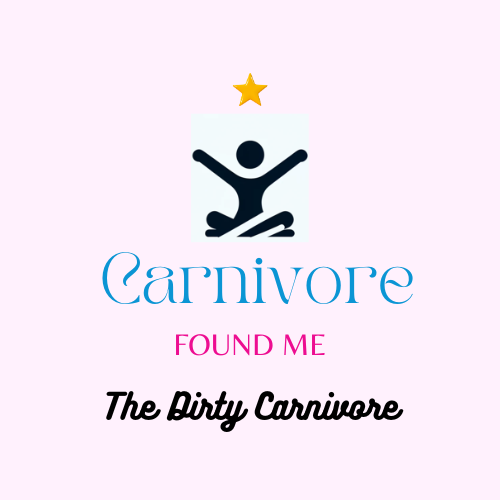Are Pharmaceutical Companies Paying Vegan Influencers to Keep You Sick?

It’s no secret that the pharmaceutical industry profits immensely from treating chronic illnesses. But is it possible that they’re orchestrating a psychological operation, or Psyop, to influence public health behavior?
With the rise of vegan influencers on social media, some speculate that veganism may be part of a broader strategy to keep people dependent on pharmaceutical drugs. In this article, we examine whether the widespread promotion of the vegan diet could be a Psyop designed to worsen health outcomes and drive up demand for medications.
What is a Psyop?
A Psyop (psychological operation) is a carefully planned strategy that aims to manipulate emotions, thoughts, and behaviors.
These operations are often used by governments and organizations to sway public opinion and influence actions, often without the audience realizing they are being manipulated.
Could the explosion of vegan influencers promoting plant-based diets be part of such an operation, orchestrated by the pharmaceutical industry to create long-term consumers of medications?
The Pharmaceutical Industry's Stake in Health The pharmaceutical industry has a vested interest in the treatment of chronic diseases such as diabetes, heart disease, and autoimmune disorders—many of which are diet-related.
By promoting plant-based diets, which can lead to nutritional deficiencies and a reliance on supplements and medications, some theorize that big pharma may be using vegan influencers as part of a psychological campaign to keep people sick, and thus profitable.
The Rise of Vegan Influencers: A Psyop in Action?
Over the past few years, the vegan movement has gained significant traction, particularly on social media platforms like YouTube, Instagram, and TikTok.
These vegan influencers tout the benefits of a plant-based lifestyle, emphasizing its role in heart health, weight loss, and environmental sustainability.
But could their influence be part of a coordinated effort to shape public behavior in a way that ultimately benefits pharmaceutical companies?
Vegan Diets and Nutritional Deficiencies While some claim that a vegan diet offers various health benefits, many nutritionists warn that a poorly planned vegan diet can lead to deficiencies in essential nutrients like vitamin B12, omega-3 fatty acids, iron, and zinc.
These deficiencies can cause long-term health problems, which may lead to increased reliance on supplements and medications. Is it possible that big pharma is quietly supporting the vegan movement to ensure more people end up needing pharmaceutical solutions?
Plant-Based Diets and Chronic Illness Some researchers argue that vegan diets may contribute to the rise of chronic illnesses, such as autoimmune diseases, digestive issues, and even mental health concerns. If true, the question becomes: Who benefits from a population plagued by health problems caused by nutritional deficiencies?
In this scenario, big pharma stands to profit from a public reliant on medications to manage symptoms rather than addressing root causes through diet. Influencing Behavior Through Social Media Social media platforms have become a powerful tool for shaping public opinion and influencing behavior, making them a prime channel for psychological operations.
The rise of vegan influencers could be seen as a carefully orchestrated strategy to steer people toward a plant-based diet, all while underestimating the potential risks.
By framing veganism as the ultimate solution to health and environmental concerns, these influencers may unknowingly be serving a larger agenda that prioritizes pharmaceutical profits over public well-being.
The Carnivore Diet: A Rebellious Alternative?
In contrast to the vegan diet, the carnivore diet—which focuses exclusively on animal-based foods—has been gaining popularity as an alternative that addresses many of the health concerns tied to veganism.
Advocates claim that the carnivore diet can help resolve issues like inflammation, autoimmune disorders, and insulin resistance, all while providing essential nutrients that may be lacking in plant-based diets.
By promoting a diet rich in meat, eggs, and animal fats, the carnivore diet offers an approach to health that challenges the mainstream narrative. Could this be why carnivore advocates are often dismissed or silenced, while vegan influencers are pushed into the spotlight?
If the pharmaceutical industry benefits from poor health outcomes, they may have a vested interest in suppressing dietary approaches that could naturally improve health and reduce dependence on medication.
Veganism as a Pharma-Backed Psyop?
The idea that veganism could be part of a Psyop designed to manipulate public health behavior may seem far-fetched at first, but the pieces begin to fall into place when considering how much the pharmaceutical industry profits from the very diseases that may be exacerbated by plant-based diets.
If vegan diets are leading to nutrient deficiencies and increased rates of illness, it’s worth asking whether the push for plant-based eating is truly about health—or about keeping people dependent on the very industry that benefits from chronic disease.
The key objective of a Psyop is to subtly influence people’s choices in a way that benefits the orchestrator, all while the public believes they’re acting independently.
If big pharma is indeed using vegan influencers as part of a psychological operation, the ultimate goal would be to increase the number of people relying on supplements, medications, and long-term health treatments, creating a continuous cycle of illness and pharmaceutical dependency.
Conclusion: Is It Time to Question the Vegan Movement?
While there’s no conclusive evidence that pharmaceutical companies are directly orchestrating the rise of vegan influencers as part of a Psyop, the possibility raises important questions.
Are we being influenced by social media trends to adopt diets that harm our health in the long term? Is veganism truly the best choice for public health, or is it part of a broader strategy to keep us dependent on pharmaceuticals?
As with any diet, it’s crucial to consider your own health needs and question who benefits from the advice you’re receiving.
By staying informed and Being the “CEO of your own health,” you can make decisions that truly support your well-being—rather than unknowingly falling into a trap set by larger interests.
By B. Hammett
© Copyright 2024 Carnivore Found Me
